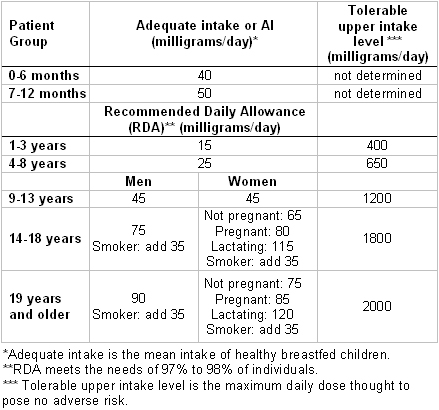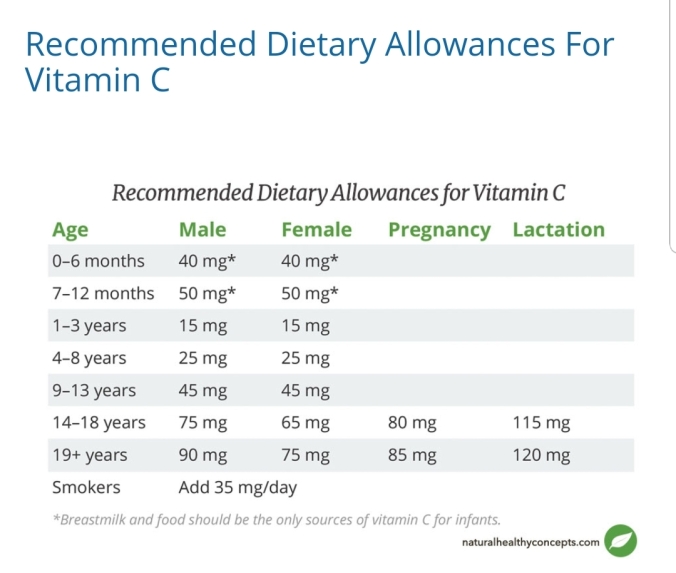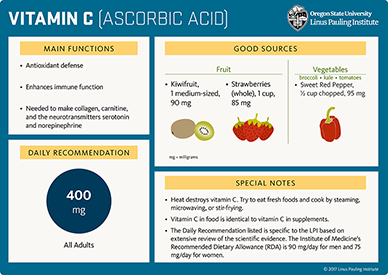It is an antioxidant and also plays a key role in making collagen. Vitamin c dosage requirements are in flux.
What Dose Of Vitamin C Journey Boost
what is the dosage for vitamin c is important information accompanied by photo and HD pictures sourced from all websites in the world. Download this image for free in High-Definition resolution the choice "download button" below. If you do not find the exact resolution you are looking for, then go for a native or higher resolution.
Don't forget to bookmark what is the dosage for vitamin c using Ctrl + D (PC) or Command + D (macos). If you are using mobile phone, you could also use menu drawer from browser. Whether it's Windows, Mac, iOs or Android, you will be able to download the images using download button.
Vitamin c is a vitamin.
What is the dosage for vitamin c. Humans unlike most animals are unable to synthesize vitamin c endogenously so it is an essential dietary component 1. Dosing guidelines for people who smoke and women who are pregnant or breastfeeding are also included. High dose vitamin c may be given by intravenous iv infusion through a vein into the bloodstream or orally taken by mouth.
Vitamin c is a water soluble vitamin and powerful antioxidant and helps the body form and maintain connective tissue including bones blood vessels and skin. Free radicals are missing an electron and the unscrupulous fiends that they are they steal electrons from healthy cells making them unstable. Vitamin c or l ascorbic acid is a water soluble essential vitamin.
Research also indicates that it may help protect against a variety of cancers by combatting free radicals and helping neutralize the. Its job is to neutralize reactive oxygen species ros or as the are commonly known free radicals. It is a very popular dietary supplement due to its antioxidant properties safety and low price.
Most experts recommend getting vitamin c. A substantial number of americans may have low intake levels of vitamin c due to the inadequate intake of fruits and vegetables. Vitamin c is an antioxidant you can get easily from a variety of foods or from supplements.
Vitamin c ascorbic acid is a vitamin your body needs to form blood vessels cartilage muscle and collagen in bones. Vitamin c can also be made in a laboratory. Good sources of vitamin c are fresh fruits and vegetables especially citrus fruits.
The recommended dose of vitamin c varies for different people. For adults the recommended. Vitamin c is a nutrient found in food and dietary supplements.
Vitamin c also seems to help the body absorb the mineral iron. The proven and effective use of vitamin c is for treating vitamin c deficiency and conditions that result from it like scurvy. Because vitamin c is water soluble your body cant store it and you need the correct daily amount to prevent deficiency according to the national institutes of health nih.
This page of the emedtv site lists the recommended dietary allowance for this vitamin. Some animals can make their own vitamin c but people must get this vitamin from food and other sources. Vitamin c is also vital to your bodys healing process.
Vitamin c is a potent antioxidant. An antioxidant vitamin c might help protect your cells against the effects of free radicals molecules produced when your body breaks down food or is exposed to tobacco smoke and radiation. Vitamin c also known as l ascorbic acid is a water soluble vitamin that is naturally present in some foods added to others and available as a dietary supplement.
 Vitamin C Supplements Understanding Their Role In Optimum
Vitamin C Supplements Understanding Their Role In Optimum
 Amount Of Vitamin C In Fruits And Vegetables Download Table
Amount Of Vitamin C In Fruits And Vegetables Download Table
 Nutrition 411 The Facts About Vitamin C And Wound Healing
Nutrition 411 The Facts About Vitamin C And Wound Healing
 Vitamin C Update What Is The Rda And How Much Is Best For
Vitamin C Update What Is The Rda And How Much Is Best For
 Vitamin C Deficiency Treatment Algorithm Bmj Best Practice
Vitamin C Deficiency Treatment Algorithm Bmj Best Practice
 The Power Of Vitamin C Taking The Correct Dose Digestive
The Power Of Vitamin C Taking The Correct Dose Digestive
 Facebook Group Advocating Dangerous Doses Of Vitamin C
Facebook Group Advocating Dangerous Doses Of Vitamin C
 Vitamin C Linus Pauling Institute Oregon State University
Vitamin C Linus Pauling Institute Oregon State University
 Role Of Vitamin C How To Overcome Vitamin C
Role Of Vitamin C How To Overcome Vitamin C
 Vitamin C Dietary Intake And Plasma Values What S Optimal
Vitamin C Dietary Intake And Plasma Values What S Optimal

